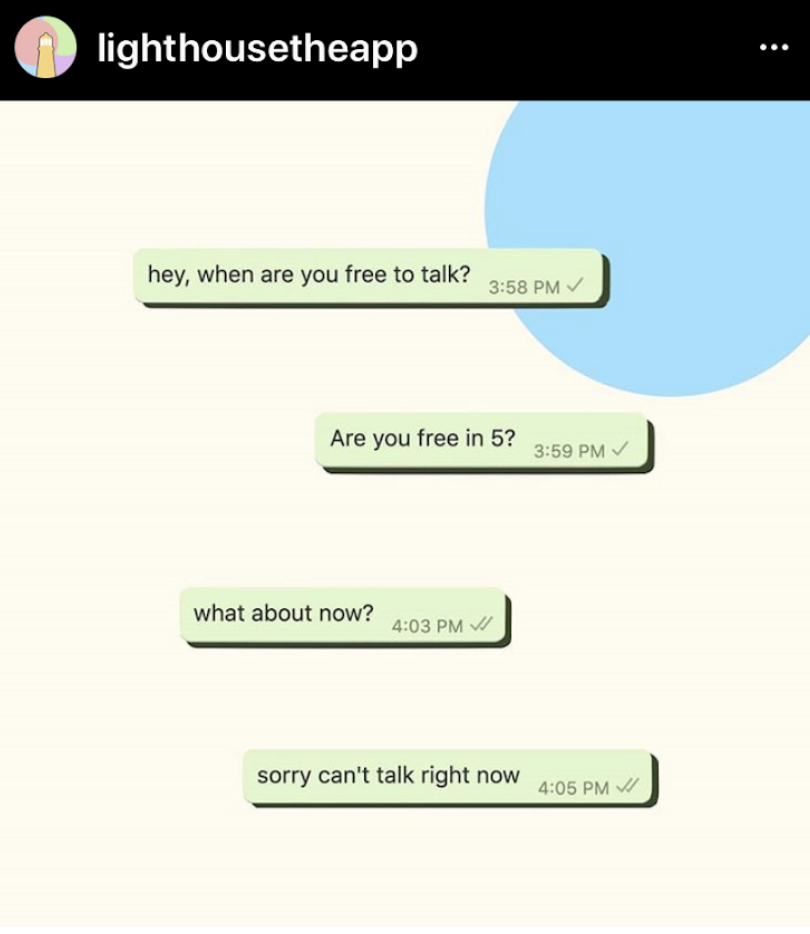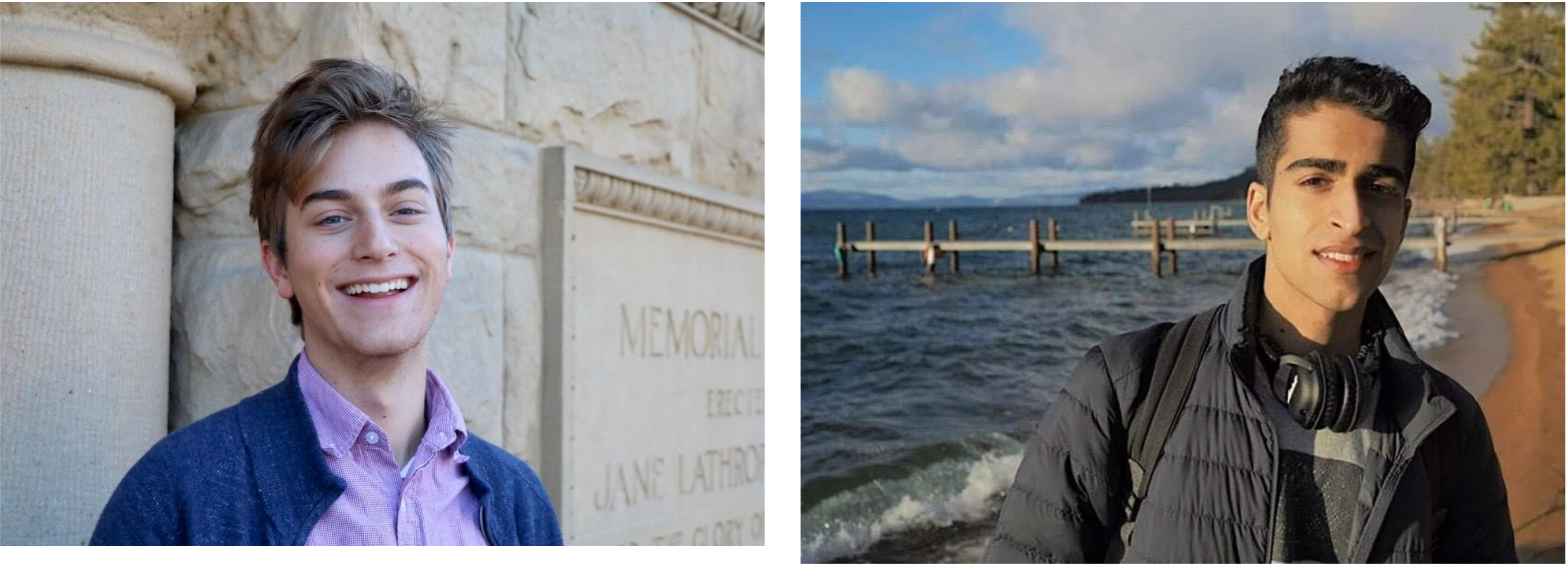Like many Stanford students, Ben Fischer ’23 returned home after Stanford closed due to the coronavirus pandemic, only to find that there was something sorely missing from his online college experience — the spontaneous connections that form the backbone of college life.
Motivated by their shared vision to foster spontaneous connections virtually, Fischer and Ishan Gandhi ’23 co-founded the app Lighthouse, with Fischer as chief executive officer and Gandhi as chief technical officer.
Lighthouse is an app that aims to “help users kickstart connections by allowing people to passively broadcast their availability” through the push of a button, according to Fischer.
The startup has raised $300,000 in pre-seed funding from Xfund, an early-stage venture capital firm with offices in Palo Alto, California, and Cambridge, Massachusetts. A few days after the beta launch on the iOS App Store, Gandhi said close to 100 users were consistently using the app daily. As of this past weekend, Lighthouse has been used a total of over 3,000 times, according to Fischer.
Gandhi also recently founded Link, a mutual crush-matching website, that prompted students to raise concerns about the safety of user data after a potential cyber attack on the website. A student security researcher said it is possible that there are vulnerabilities with Lighthouse, as with any app.
After Fischer came up with the idea for the app in March, his eureka moment struck while reading Virginia Woolf’s “To the Lighthouse,” which he said “is really all about human connection and trying to understand each other.
“In the same way [a lighthouse uses its light to guide ships toward it], by turning the light on in the app with the tap of a button, you’re asking others to come to you,” he added.
Whenever a user is free and available to call, they press a button on the landing page of the app, turning on their “light,” which immediately sends a notification to friends on the app that the user is free. Friends can then choose to tap into the notification and go straight into a FaceTime call, bypassing the need for the back-and-forths typically involved in setting up calls with friends.
Xavier Martinez ’23, an avid user, said the app is “a blast to use,” noting that he has been talking to people a lot more as a result, especially friends from his hometown who go to other colleges.
His favorite part of the app is the “groups” feature, where users can make themselves available for a spontaneous call to friends in a group.
“I have two of my best friends from high school in a group — it makes it easier for us to get in contact with each other even though we all go to different schools now,” he said.
Other users were less enthusiastic. Jeewoo Choi ’24 downloaded the app “just to see what it was like, but never got around to using it much.”
“The app just linked me up with people I already had in my contacts list,” Choi wrote to The Daily. “I feel like if it had the ability to make users meet new people, then I’d be using it a lot more because I find doing that very fun.”
A number of clubs have also started adopting Lighthouse as a mode of communication, including Stanford Blockchain Club, Stanford Mock Trial and Stanford One for the World. Fischer encouraged more clubs to create groups as a “community-building recruitment tool.”

“Lighthouse fits into the social space — not as a rival platform, but as a catalyst,” Fischer said. “We don’t want people to spend hours a day browsing our app. We’re really just a tool — we want to encourage people to get off the app and talk to people, face-to-face. That’s the way we’re successful.”
“Despite the similarities with Houseparty and other [social apps] that try to imbue spontaneous connection at first glance, the main thing with Lighthouse that differentiates it is just how passive it is,” added Gandhi, who has acted as a liaison between The Daily and the radio station KZSU. “It’s for all those five minutes, little moments in the day that you can just turn your light on, kick back and carry on with the rest of your life.”
Cybersecurity
Lighthouse requests to access users’ contact lists from their phone, which has led some to raise concerns about how user data is being protected. Gandhi’s previous startup Link, which collected the names and email addresses of Stanford students, claimed to protect user data with “industry-standard data encryption,” but was vulnerable to SQL injection attacks which could result in user data being compromised.
In response to cybersecurity concerns raised about Link, Gandhi’s previous start-up, Fischer wrote that “the data and permissions [they] request to use for the functionality of the app are far removed from Link, and its site-based security flaw.”
“We can both absolutely assure users that the minimal data we collect is 100% secure and stored by Firebase, the same backend used by giants like Twitch, Yahoo and other major players,” Fischer wrote in a statement.
Election Security Technical Advisor at the U.S. Cybersecurity and Infrastructure Security Agency (CISA) and prominent bug bounty hunter Jack Cable ’22, who has identified over 350 security vulnerabilities in top companies including Google, told The Daily in a statement speaking in his personal capacity that it is “possible” that Lighthouse is vulnerable, as with any app.
“It is possible to misconfigure Firebase, or other services that they depend on, in an insecure manner,” Cable wrote. “Thus, while there might be a different set of potential vulnerabilities when using cloud technologies such as Firebase, this does not mean that they are completely secure.”
Cable wrote that the app’s ability to access the contact list from a user’s phone could be cause for concern.
“I would be concerned about who at the company has access to the data, including its Google Compute Platform cloud environment, and the steps that the company is taking to prevent its employees from abusing this data,” Cable wrote.
Fischer wrote that Lighthouse takes its privacy policy seriously, and does not collect more data than is needed for the functionality of the app: “At the end of the day, we’re a couple of Stanford students trying to make online connection easier, not a corporation playing in shadows with user data,” he said.
Cable encouraged the developers to take the security of their app seriously by actively testing and taking input from users and security researchers, adding that “this starts by acknowledging that no app can be 100% secure.”
Looking to the future, Fischer intends to scale Lighthouse to “everywhere for everyone.”
“What is missing is not a college experience, but a life experience,” he said. “It’s not just a dorm door, but it’s the water cooler, it’s the elevator, it’s seeing somebody in the line at a coffee shop — it’s all these moments of spontaneity that we’re so used to as a social dynamic in the real world, that isn’t there online.”
Fischer anticipates that Lighthouse’s biggest challenge will be changing online culture and the way people are used to reaching out to one another.
“Lighthouse is a place where reconnecting and keeping in touch isn’t filled with all the same sort of expectations and even, I think, stigmas that exist on messaging platforms,” Fischer said. “I think we’ve created a space online where [the risk of rejection] is encouraged and so far, people have been readily embracing it.”
This article has been updated to reflect that Jack Cable provided this statement in his personal capacity, not on behalf of the CISA.
Contact Denise Hui Jean Lee at deniselj ‘at’ stanford.edu.
